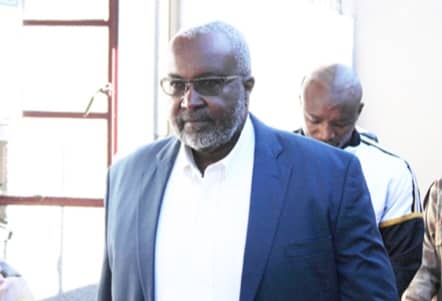JOHANNESBURG – CIC Energy Corp is ‘optimistic’ it will be able to sign a 30-year agreement with South Africa’s utility Eskom to purchase power from its Mmamabula project in Botswana, an official said on Thursday.
CIC President Gregory Kinross said South Africa’s power needs were much bigger than the expansion programme so far planned by Eskom, and the country would therefore require independent power producers (IPPs) like CIC to pitch in.CIC had to put its plan to built a coal-fired power station, with a gross capacity of 1 320 MW, on hold, after the utility said it was not yet ready to sign a multi-decade agreement as it faces an N$80 billion (US$10,84 billion) funding shortfall.’We are confident that there is still the need for that capacity and that Mamabula is ahead of any IPP,’ Kinross told Reuters in the interview. South Africa’s government recently changed the rules by which it has become the authority that will decide which sources of energy – be it Eskom’s own generated power, renewables, imports or IPPs – will become part of the country’s energy mix.’Eskom will submit a whole range of options and it’s up to the ministry of energy to make those determination … we are optimistic that we will be included,’ Kinross said.He said a shorter power purchase deal than the 30-year contract eyed at the moment would not make sense.He also said there were no other credible buyers for that much power in the region and CIC might be forced to downsize or postpone the project if no deal is signed come March next year. Kinross said CIC is also planning to export some of the coal from the Mmamabula coal field, eyeing shipments of between 15-20 million tons per year.TRANS-KALAHARICIC has completed a pre-feasibility study for the development of the Trans-Kalahari rail line from Botswana to Namibia, which would be necessary to transport the coal to port.The company had also investigated the options to export coal via the ports in Maputo, Mozambique, or through the Richards Bay Coal Terminal (RBCT) in South Africa. ‘Our study considered all the options, but we believe that the Trans-Kalahari is the best one,’ he said. Kinross said the governments of Namibia and Botswana would decide which model should be adopted for the line’s development.A privately-owned and operated line made most sense, Kinross said, but other models, including a private-public partnership, could also be looked at. CIC itself has no interest in becoming a rail operator, he said.He said there was already a lot of interest for that coal from potential buyers in Europe and Asia.’There is very significant interest from all the major coal consumers in Europe and Asia-Pacific … even for long-term off-take,’ he said. He expects the two governments to make a decision on the rail line by early next year, and said it could take up to four and a half years from that decision to have it operational.- Nampa-Reuters
Stay informed with The Namibian – your source for credible journalism. Get in-depth reporting and opinions for
only N$85 a month. Invest in journalism, invest in democracy –
Subscribe Now!










